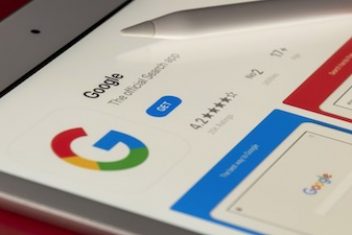With age, many seniors find that their quality of life diminishes. Usually, it is the little things, like not being able to care for their plants or not having the energy to check the news every morning.
Although often it is impossible to get to their former glory, it doesn’t mean older adults have to settle for a life of inactivity. Instead, they can take advantage of the many new technologies designed to help improve seniors’ lives.
Medication apps and GPS tracking are now standard — and there’s little innovation in these technologies. Nevertheless, there are plenty of other new gadgets that can help seniors be more independent and enjoy their autumn years. Below, we’ve rounded up ten of the best.
Read: How Digital Technology Can Benefit Your E-Commerce Business
Smart Assistants
Smart assistants like Google Home and Amazon Echo are not the newest technology on the block, but they are becoming increasingly popular among seniors. That’s because they offer a hands-free way to do things like check the weather, set alarms, and play music.
For instance, you can ask your assistant for “family doctor Orlando” and it’ll come up with a list of wellness professionals in the area and provide you options to call, schedule an appointment, or check directions.
There are also many health-related apps that you can use with these devices. For example, some apps can remind seniors to take their medication or track their fitness levels without the need to invest in a separate appliance.
Read: Top 7 Technological Advancements in the Field of Medicine and Pharmacy
Wearables
Long gone are the days when you had to sit down with a monitor and wait for it to inflate to check your blood pressure. Now, many wearable devices can do the same job. Plus, they can do so without taking up space on your wrist.
The Apple Watch is a prime example of that. Today, its feature set is way beyond anyone’s imagination. In addition to tracking fitness levels and taking phone calls, the Apple Watch can also monitor heart rate and blood saturation levels, making it a valuable tool for seniors with health concerns in the age of COVID-19.
The good news is that the market has matured enough, and the prices have dropped to a point where anyone can afford one of these devices.
Smart Home Appliances
Although they are often presented as gimmicks — because who needs a tablet embedded into a refrigerator — smart home appliances can be quite helpful for seniors. Smart thermostats, for instance, can help seniors save money on their energy bills by automatically adjusting the temperature to match the outside conditions.
Other smart appliances, like robotic vacuums, can help seniors with limited mobility keep their homes clean without lifting a finger. Just make sure the device you choose is compatible with the rest of your smart home ecosystem, including your voice assistant.
Read: How Artificial Intelligence Can Power Your Retirement
Medication Assistants
Again, reminder apps aren’t a new thing, and chances are that you are already using one. However, some brands went further with the idea, inventing devices that can not only remind you to take your medication but also dispense it.
Pillsy is one such example. It’s a water-resistant smart pill bottle that connects to your smartphone and tracks when you’ve taken your medication. It also sends reminders to your caregiver or loved ones, so they can make sure you’re taking your pills on time.
This type of technology can be a lifesaver for seniors who have to take multiple medications throughout the day.
Accessibility Tools
Today, more and more apps and webpages come with built-in accessibility features that can help seniors and people with disabilities use them more easily.
For instance, many websites now allow users to increase the font size or change the contrast to make the text more visible. Similarly, many smartphones come with simplified interface options that can make them easier to use for seniors with dexterity issues.
Recently, Google introduced Sound Notifications, a new accessibility feature for Android that notifies the user about the surrounding sounds — doorbells, smoke alarms, or even train announcements. While it isn’t explicitly designed for seniors, it can be a useful tool for enabling them to live independently.
Read: Internet of Medical Things IoMT : benefits and challenges in the healthcare industry
Video Calling
The pandemic has forced us all to remain home and stay connected with the help of technology. And while Zoom calls might not be everyone’s favorite way to spend an afternoon, they are a great way to keep in touch with family and friends — especially seniors who might not be able to leave their homes often.
Most smartphones and laptops come with built-in video calling apps, but there are also many dedicated solutions, like Skype or Teams. Just make sure you choose one that is easy to use so your senior loved ones can enjoy spending time with you without any frustration.
Virtual Reality
VR falls more on the entertainment side of things, but you can also use it to improve your quality of life. Putting on a VR headset and transporting yourself to a different location can be a therapeutic experience.
There are many VR apps out there that can transport users to different environments from the comfort of their own homes. For instance, many museums and art galleries offer virtual tours that you can access with a VR headset. It is an excellent way to explore the world without getting out of the house.
Using these solutions, seniors can enjoy the exhibits without having to leave their homes. Sure, it doesn’t compare to the real thing, but it’s still a great way to spend an afternoon.
Read: How Can Artificial Intelligence be Used in Education
Online Shopping
Doing groceries every day is inconvenient, even for people without mobility issues. For seniors, it can be a real hassle — especially if they have to use public transportation to get to the store.
Fortunately, many stores now offer online shopping with home delivery options. This way, seniors can easily and safely shop for their groceries. With apps like Amazon Prime Now, they can even get same-day delivery in some areas.
Streaming Devices
The state of today’s television leaves a lot to be desired. There are so many channels and shows it’s impossible to keep track of them all — let alone find something worth watching. It is also why more and more people are cutting the cord and switching to streaming services like Netflix or Hulu.
For seniors, streaming devices can be a great way to stay entertained without having to deal with the hassle of traditional television. First, devices like Roku or Amazon Fire TV Stick are pretty cheap and straightforward to set up. Second, they offer a much better selection of shows and movies than any cable company.
Overall, streaming devices can provide a much better experience for seniors than regular television. Not to mention, it can also help them save some money on TV entertainment.
Read: Gaming Disruptors: Are Streaming Services Disrupting the Industry
Remote-Controlled Massage Devices
One of the many things that change with age is our ability to recover from muscle soreness. Aches and pains become more frequent, and it takes longer for our bodies to bounce back. One way to cope with this is to get a massage, but that’s not always possible.
Instead, seniors can take advantage of the many remote-controlled massage devices that are now available on the market. These devices use air pressure and vibrations to provide a massage without the need for a professional masseuse.
There are many different models out there, so make sure you choose one that fits your needs and budget. For instance, you could get a heated neck massager for those days when your muscles are really sore.
How Technology Can Help Seniors
As we age, our quality of life can diminish in many ways. We may not be able to take on the same physical activities, we may not be as sharp mentally, and our social interactions may suffer.
But just because we’re older doesn’t mean we have to give up on life. And restricting ourselves from using new technologies, which can help us in so many ways, would be a real shame.
So, if you’re a senior citizen or know someone who is, don’t be afraid to embrace the new technologies that can help improve your everyday life. Even the smallest bits can help you feel more independent, more connected, and — most importantly — more in control of your life.
Read: 16 Innovative Technologies to Prevent Car Accidents
Potential Concerns
All of the above isn’t to say that you can replace human interaction or live without leaving your home. It is rather that technology can help supplement these activities in a way that improves our quality of life.
A smart vacuum can easily take care of keeping your floors clean, but it can’t provide the same level of companionship as a real pet. Video calls are great for catching up with friends and family, but they’re not a replacement for in-person interactions.
The key is to use technology as a tool to supplement your life — not replace it altogether.
In Conclusion
Living in the age of technology has its perks, especially for seniors. No longer do they have to rely on their children or grandchildren to stay up-to-date. Instead, they can use many gadgets and devices to do that on their own.
And it’s not just about SOS buttons and emergency response systems. Today, many tools and apps can help seniors with their everyday activities, from taking their medication on time to keeping their homes clean.
The only thing left is to assess your needs and find the technologies that fulfill them. With their help, you should have no issue improving your well-being and living your best life.
If you like the content, we would appreciate your support by buying us a coffee. Thank you so much for your visit and support.



